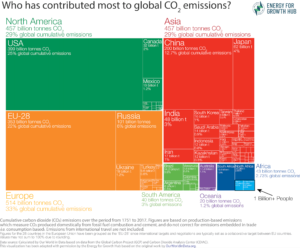The world is going green, countries around the globe are expected to be a part of this historic transition to cleaner and renewable sources of energy. However, while the impact of a cleaner and sustainable environment is promising, many questions have been raised on the energy transition’s effects on the underdeveloped and low emission countries, especially in Africa.
Africa has one of the highest populations of people with no access to energy globally. With many underdeveloped countries and millions of people living in extreme poverty, several stakeholders seek to understand how the poor and vulnerable countries can be a part of the global energy transition to ensure that economic development is not hampered.
The Energy for Growth Hub’s recently released report proposes six basic principles to help development funders support inclusive and equitable energy transitions in low-income countries. The report titled ‘Reframing Climate Justice for Development: Six principles for supporting inclusive and equitable energy transitions in low-emitting energy-poor African countries’
In this report, the Energy for Growth Hub has focused on the need for a global energy transition based on the principles of inclusion and equity, citing the developmental challenges of sub-Saharan Africa. According to the Energy for Growth Hub, it is imperative there is a concerted effort to reframe the transition process taking into account the limitations of developing countries, especially for sub-Saharan Africa.

Source: Energy for Growth Hub
The principles proposed by The Hub includes;
- Diversity: Policies should be flexible and country-specific
- Agency: Priority and support should be given to African-owned ambitions and plans
- Ambition: Aim much higher than universal household access.
- Resilience: Prioritize energy solutions for climate adaptation.
- Innovation: Invest in emerging solutions, but beware of naive ‘leapfrogging.’
- Equity: Treat the remaining global carbon budget as a ‘development budget.’